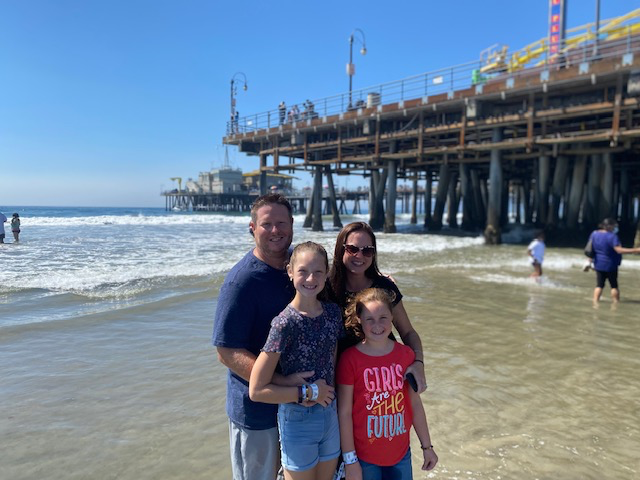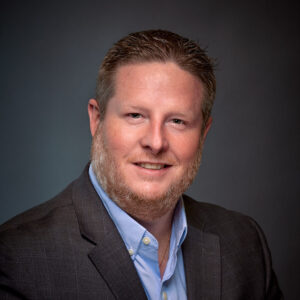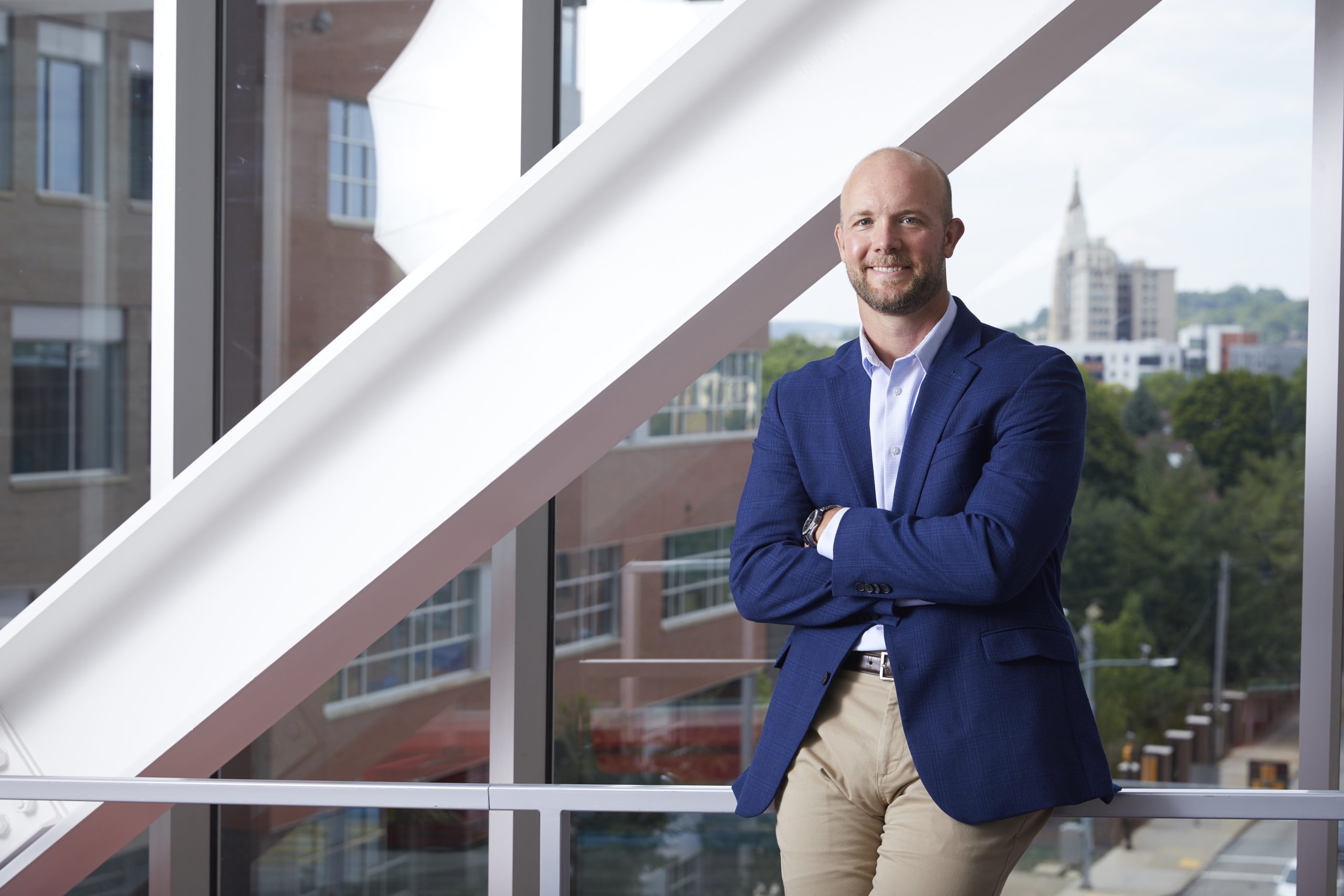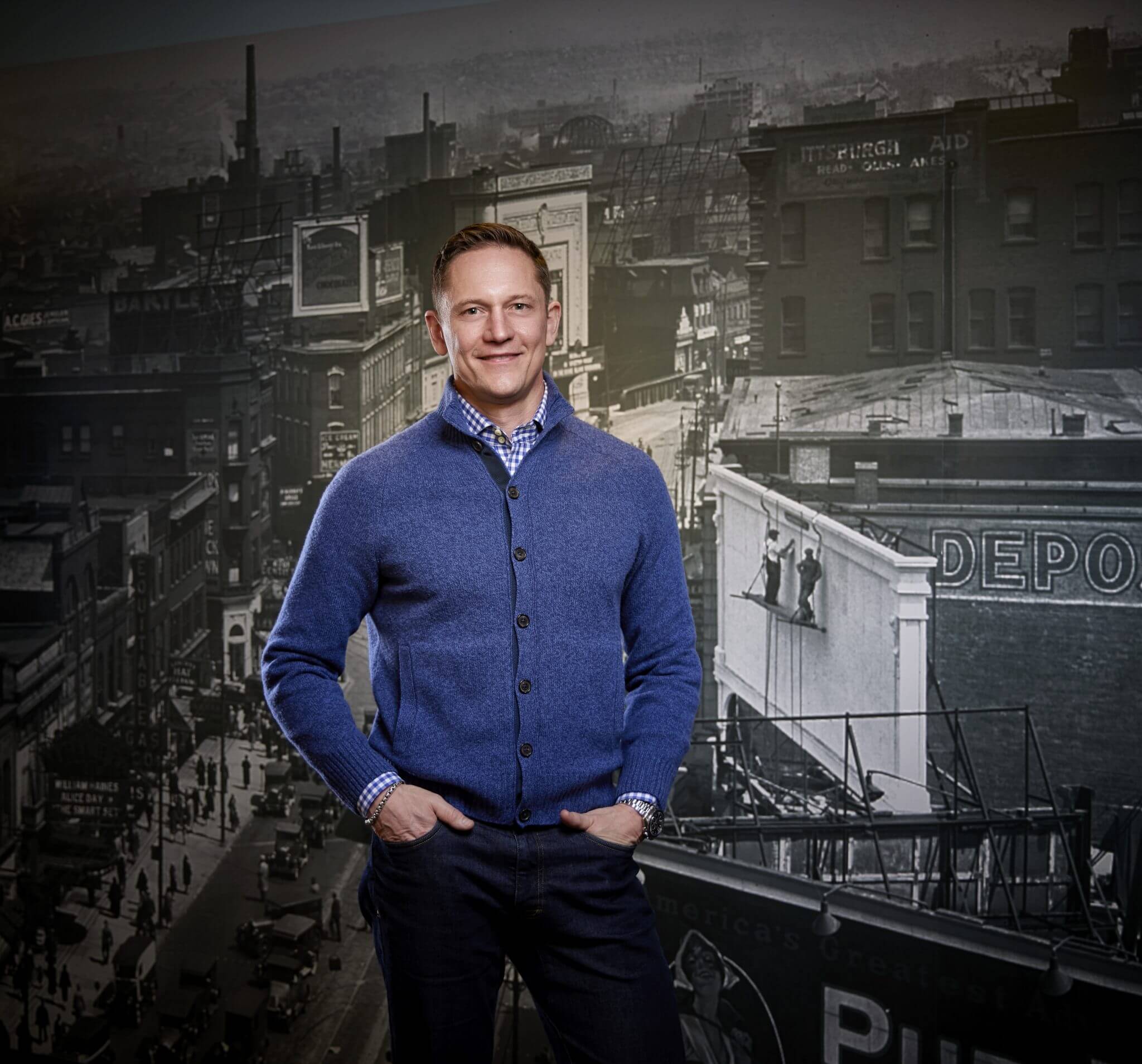
May 3, 2023
Meet the Executive: Brian Susko, Vice President of Engineering and Product Development
Brian Susko is Vice President of Engineering and Product Development at UPMC Enterprises, a position that oversees production of high-quality software, testing frameworks, continuous integration, and continuous delivery (CI/CD) pipelines, and the UPMC Enterprises Agile framework for the MyUPMC team.

With more than 20 years of experience in software development, Susko has held software engineering/architect roles in the banking, food, and supply chain, and at natural language processing (NLP) startups before joining Enterprises in 2017. He earned a bachelor’s degree in computer science from Saint Vincent College.
Susko’s interest in software developed in high school when he took a computer class in his senior year. The internet was new, and he created a tic-tac-toe game. “I realized right then and there that I really enjoyed what I was doing, and I never looked back,” he said.
We talked with Susko about his role, what makes his team so appealing to siblings, and his obsession with Rubik’s Cubes. Keep reading to learn more about him and the MyUPMC team.
You’ve worked as a software developer in many different industries, including finance and food production. What are the unique challenges and opportunities of working in health care compared to these other industries?
The greatest challenge is also an opportunity here and that is we’re vital to hundreds of thousands of patients every day. Our platform really matters to our patients, who might be looking for a test result that could change their lives or waiting for a message from their doctor that could have a profound impact on their lives. That mission is always front and center, that what you’re doing really matters to patients. Someone’s health is so much different than their social life or buying something online.
A way to enable that mission, I believe, is to focus on providing good leadership. I’ve had leaders and managers who showed me the type of leader I wanted to be and didn’t want to be. With every decision, I try to remember that I work for my team and not the other way around. I try to put the people in places where they are empowered to do their job. My role is to get roadblocks out of the way so they can succeed and that’s been invaluable as I grew into senior leaderships positions.
It’s no secret that talented software engineers have many choices of where to work. How do you make the pitch that they should come work at Enterprises?
Specifically, for MyUPMC we can do multiple things, from mobile and web and cloud infrastructure to security to helpdesk. We have a large presence with more than 500,000 monthly users. It’s grown from a product to a program and especially on the product management and engineering side of things you get to do a lot of things. And then beyond our team, there are lots of opportunities to grow with Enterprises. There’s always something new.
It’s easier said than done, but we as a program try to make sure there’s a culture that people want to be a part of. We have some of the top engineers in the area who could go anywhere, but they stay here because they like the environment. We have a big “check your ego at the door” culture. We want to make sure that everyone has a role to play, and everyone can learn from each other. We try to make it feel like a flat hierarchy as much as possible and I believe that is very appealing to people.
You have a twin brother who works on the MyUPMC team, and you both are not the only sets of brothers on the team – what is it about the team that attracts siblings?
I’ve always seen that as a testament to the special team we have here. We have a father-son, and multiple sets of twins and siblings. To me, the fact that a family member would tell another family member, you should work here – I take a lot of pride in that. Our team is putting a family relationship on the line and that’s a big deal. For me personally, I was excited to see an opportunity for my brother to join our team. Or for a team member to look at his son coming out of college and say, I have a great place for you to work. It’s a true testament to the culture we’ve built here.
Who has inspired you in your life and why?
There have been a lot of people, but the first one that always pops up is my father. He instilled into his children the idea that if you work hard, you’ll win. But just as importantly, when you do win you put that victory behind you because it isn’t going to help you win the next one. I try to be humble in that way. Your last win is just a learning experience for what you’re going to do next.
If you were stranded on a deserted island, what is one item you would want and why?
A Rubik’s Cube. I’m obsessed. My daughter brought one home a few years ago and said, “Daddy, solve this.” And I sat down with YouTube and watched videos for hours and figured out how to solve it. And I haven’t put it down since because there are multiple systems for solving the puzzle and it’s different every time. I think it appeals to the software engineering side of my brain.
What was your first job and what did you learn from it?
My first job was a lifeguard. I was a teenager and the greatest thing I learned was people skills. It was at a health club and there weren’t many children using the pool – mostly adults there for exercise. So, I never had to jump in and save anyone. But what I did have to do was learn to interact with all kinds of different people and pick up an understanding for what type of person I was dealing with and how to effectively deal with them. It was more like a customer service role because I was the face of the health club at the pool. I remember leaving that job and thinking to myself, “Now I know how to deal with people.”

